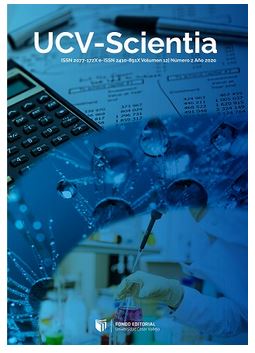Proposal of a curriculum based on the theory of productive education for the training of graduates in education
DOI:
https://doi.org/10.18050/RevUcv-Scientia.v8n2a8Keywords:
Proposal of a Curriculum, Theory of Productive EducationAbstract
The present research aimed to propose a curriculum based on the theory of productive education for the
training of Secondary Education Graduates in the Field of Natural Sciences at the Faculty of Education and
Communication Sciences of the National University of Trujillo. The proposal of a curriculum articulated to
the theory of productive education and a university academic model was the result of a process of
theoretical and empirical contrast. In theoretical contrast, the methods were induction, deduction,
procedures of analysis, synthesis and modeling. The result of this research work was the design of a
Curriculum model based on the theory of productive education and that, at the same time, takes into
account an academic university model that has the production as central pedagogical axis. This axis
articulates research, social projection, creativity and identity, which is expressed quantitatively in credits
and qualitatively in the development of the academic subjects. A curriculum for secondary education
graduates in the field of Natural Sciences is geared towards training mainly producers of knowledge, new
technologies and educational scientists. It was concluded that a curricular proposal should be a valuable
reference for vocational training in secondary education graduates, which has become evident.
Downloads
Published
How to Cite
Issue
Section
License

This work is licensed under a Creative Commons Attribution-NonCommercial 4.0 International License.
- Share — copy and redistribute the material in any medium or format
- Adapt — remix, transform, and build upon the material.
- The licensor cannot revoke these freedoms as long as you follow the license terms.
Under the following terms:
-
Attribution — You must give appropriate credit, provide a link to the license, and indicate if changes were made. You may do so in any reasonable manner, but not in any way that suggests the licensor endorses you or your use.
- No additional restrictions — You may not apply legal terms or technological measures that legally restrict others from doing anything the license permits.













